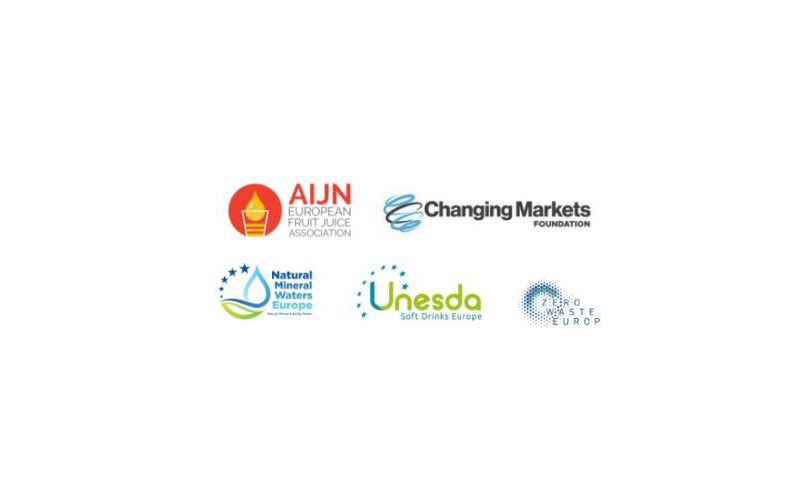Towards a policy framework that enables efficient waste collection, closed loop recycling and access to recycled content
AIJN joined forces with NMWE, UNESDA, the Changing Markets Foundation and Zero Waste Europe to call on EU decision-makers to create the right enabling policy framework …

AIJN joined forces with NMWE, UNESDA, the Changing Markets Foundation and Zero Waste Europe to call on EU decision-makers to create the right enabling policy framework and help our industries accelerate the transition to a circular economy.
AIJN, together with Europe’s non-alcoholic beverage industry represented by Natural Mineral Waters Europe (NMWE) and UNESDA Soft Drinks Europe, and leading NGOs, including Changing Markets Foundation and Zero Waste Europe, call on EU decision-makers to create the right enabling policy framework to help accelerate the transition to a circular economy in Europe. Our organisations underline the need to ensure resource-efficient waste management systems to enable close-loop recycling. We also call for a “priority access”, or a similar mechanism that guarantees a “right of first refusal” to beverage producers to facilitate their fair access to the food-grade recycled materials coming from the products they placed on the market and which were successfully collected.
The EU Circular Economy Action Plan has the ambition of accelerating the transition to a circular economy. This will require significant changes in the way we collect, reuse, recycle and incorporate recycled materials. Achieving fully closed and resource-efficient waste management systems for all materials should be the primary objective. The more closed-loop a system is, the more resource efficient it will be by delivering quality recycled materials which can be re-used multiple times for the same application. Therefore, for each sector, the ultimate goal should be to achieve «closed-loop recycling». With the right enabling policy framework this can be achieved.
Read the recommendations here and see the position paper attached below as well.









